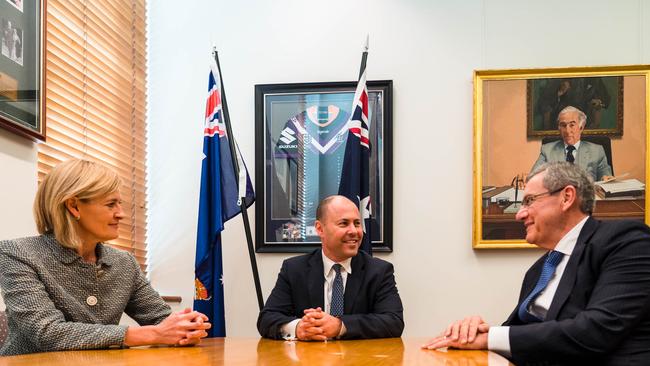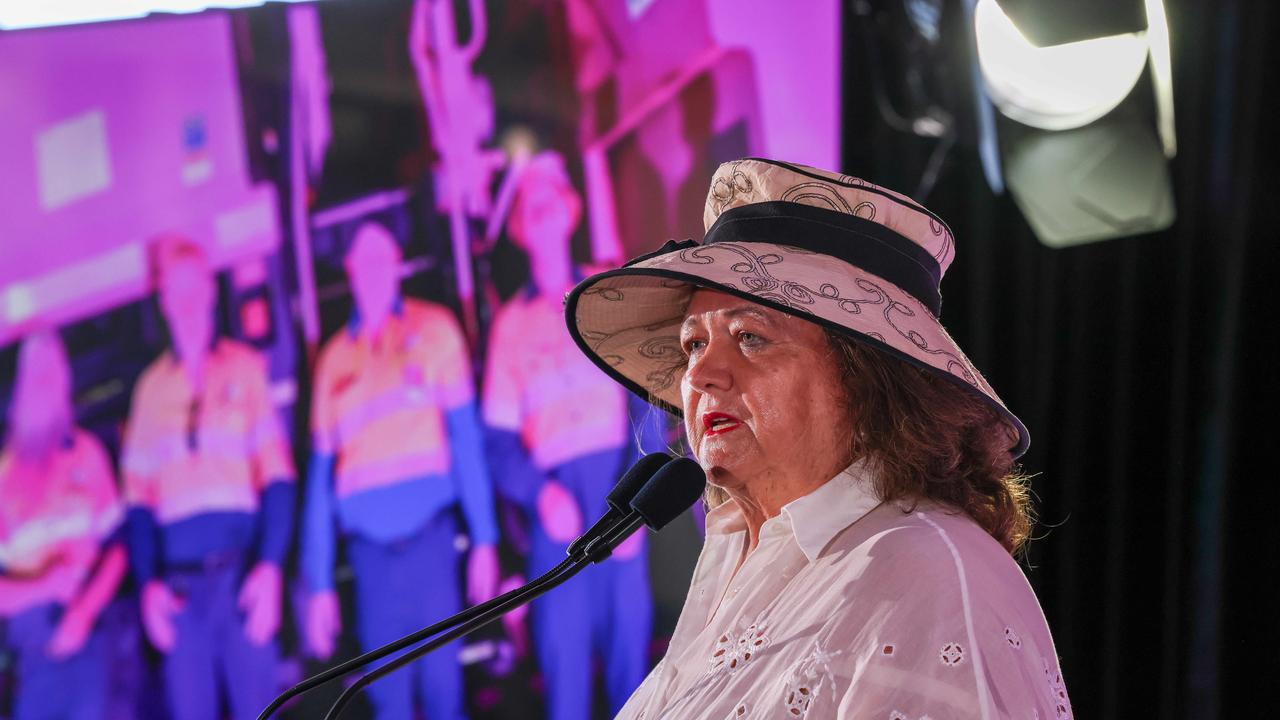
Tanna will hand over the reins at EnergyAustralia to her retail boss Mark Collette in an orderly transition, particularly when compared to the outright chaos presided over by AGL chairman Graeme Hunt amid plans to split the company.
Either way, two of the big three electricity retailers are changing guard as the ESB notes change is coming to the industry faster than anyone had predicted.
ESB boss Kerry Schott argues: “The rapid spread of large-scale wind and solar, along with rooftop PV, across Australia means our energy system is experiencing the fastest and most substantial change in the world.
“There is no doubt that policy changes are needed to the existing market design and the decisions that ministers make mid-year, and in the future, are critical to reaching an affordable, reliable and secure electricity system that is able to operate at net zero emissions.”
Schott urged ministers in a statement on Thursday: “We are particularly looking for your views on a potential national electricity market-wide, common approach to integrate jurisdictional underwriting and investment schemes for new investment.”
Renewables are taking hold, which means a rewrite to market designs and transmission grids.
Electricity prices are falling as wind and solar generation increases, which is one box ticked, and the ESB has expressed confidence it has security covered, which is another, but what is needed most is long-term signals to help guide new investment in transmission and distribution.
The good news is states like NSW, Victoria and South Australia are pushing ahead with their own policies and targets that almost make what the federal government does irrelevant.
But if Canberra wants to really benefit from the revolution happening all around it, then according to the likes of climate change lawyer and Pollination co-founder Martijn Wilder it needs to lay down a clear pathway for business to follow.
This is the difference between capitalising on the change and actually boosting returns from the revolution.
Tanna took the top job at CLP’s EnergyAustralia in 2009 and, with the help of the likes of Collette, she restored the company’s profitability, but question marks remain over this future even after the recent deal to close its Yallourn power station in Victoria early.
It has investment decisions pending in NSW, including over a new gas-firing plant and decisions on its own place in the distributed energy market.
Tanna has laid the foundations and Collette, a Tigers football club tragic and 18-year veteran, will have to chart the future for its 2.4 million customers when he takes over in July.
Schott was one of many who says the industry will miss Tanna’s authentic leadership and straightforward contribution to industry debate.
A Reserve Bank board member, Tanna plans on taking a break before deciding on her next move which, no doubt, will come after charting her youngest through her final year at school this year.
Myriad board seats beckon for Tanna.
Lawyer’s ASIC brief

Josh Frydenberg has returned to the trusted formula of having a commercial lawyer, in this case Joe Longo, as his corporate cop as the Treasurer attempts to resurrect ASIC.
A former head of ASIC’s enforcement operations, Longo served under then chair David Knott in the late 1990s and early 2000s. He started his career as a corporate lawyer in Perth with Parker & Parker.
Separately, longtime ACCC commissioner and former government lawyer Sarah Court will join as deputy to fill the shoes left by Daniel Crennan when he left last year.
Both appointments were welcomed in the market as two highly experienced practitioners to chart ASIC’s future.
Another deputy, Karen Chester, will remain in her role but, having publicly declared she was a candidate for the top job, just how long she stays remains to be seen.
In the void left by James Shipton’s absence, Chester showed she was more than capable and she also used the time to complete implementation of her own governance review of ASIC by installing a chief of operations in Warren Day.
This was to ensure better governance relations between the commission and staff.
Longo is highly regarded internally and externally as a no-nonsense operator.
He is unlikely to install shrinks in board rooms, as Shipton did.
Shipton was a disastrous appointment by the then-treasurer and now Prime Minister Scott Morrison in 2018. The amiable Shipton was an ineffective corporate cop and Frydenberg seized on his snafu over the handling of tax advice on his starting pay to ease him out of the job.
His term was not made easier by his reign being clouded by the banking royal commission, which highlighted ASIC’s inaction and lack of political support.
Surprisingly, when Shipton was selected on the urging of former minister Kelly O’Dwyer, Longo was not even on the short list drawn up after former prime minister Malcolm Turnbull developed trademark cold feet over his chosen appointment, John O’Sullivan.
Shipton had worked overseas for much of his career, which meant he lacked the necessary business support base to ply his trade, and political support for his position was non-existent given the background to his appointment.
Longo’s position could not be more different. A long background in Australia means he has a well-developed support network, coupled with international experience.
Not surprisingly, lawyers tell you the best regulators are lawyers with a commercial instinct and Longo ticks this box.
The reason why they are favoured is they understand the rules of natural justice, have a clear instinct for when litigation works and when it doesn’t.
Longo is the first lawyer to run the corporate cop since Tony D’Aloisio left in 2011.
A Perth boy, he cut his teeth at ASIC taking legal action against some of the city’s 1980s superstars such as Laurie Connell.
As Treasurer, Frydenberg has plenty of issues on his plate and the last thing he needs is a troublesome regulator.
Longo will ensure ASIC stays on task and away from policy, which will also suit Treasury.
It remains to be seen now whether Frydenberg proceeds with the planned regulator review board recommended by Kenneth Hayne.
Some would argue the position is not necessary and Frydenberg should just let them get on with their jobs.
He has committed to proceed with Graeme Samuel pencilled in for the job, but now Longo is in the job it may not be considered as important.






The timing could not have been better with Catherine Tanna, a voice of reason in the energy debate, departing EnergyAustralia the day the Energy Security Board released its latest paper warning of the need for long-term signals for new investment.